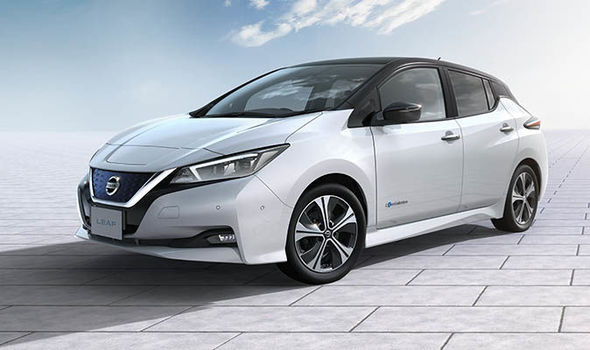The Nissan Leaf is riding the EV take-up wave
When the Nissan Leaf was first launched in 2010, there was a lot of uncertainty around the future of electric vehicles (EVs) in an industry which has been dominated by fossil fuel motors for over a century.
The Nissan Leaf is leading the charge in the EV market, no pun intended. At late 2017, it had sold ~300,000 vehicles worldwide since it was first introduced, and sales are expected to accelerate from here on.
The new 2018 Leaf includes a 40kWh battery with a best-case range of 230 miles although under real world conditions this range drops to ~170 miles which is enough to get from London to Manchester on a single charge. It is also worth noting that in 5 degree celsius weather, the average range is 110 miles as there is more stress on the battery. Nevertheless, like all technologies, that of battery storage is only improving and the Leaf's range by 2019 is expected to be 310 miles. For long journeys, public rapid charge points can charge about 80% of the battery in about 40 minutes. For everyday transport, the battery can be charged at home on a 7 kW charger in under 8 hours, preferably at night which is cheaper and causes less strain on the grid. So assuming a 7p /kWh night rate, you can drive for just under 2p a mile. Compare that to an average mile on petrol at ~14p. For 100,000 miles, this equates to fuel savings of £12,000. Other savings on EVs include tax exemptions on Vehicle Excise Duty (VED), the London congestion charge and the T-charge. There is also a government grant capped at £4.5k for the purchase of an EV, as well as £0.5k for a home charger.
In addition to improvements in the battery, other technological improvements of the Leaf include regenerative ebraking, assisted driving & parking technolgies as well as energy saving heat pumping. The vehicle can also go from 0-62mph in 8 seconds, which is comparable to traditional sports cars.
In addition to advanced technology and operational cost savings, the Leaf is affordable, priced between £22k and £27.5k which includes the government grant mentioned above. And it should only become more affordable with time, not just the Leaf but EVs in general. Factors such as Government support, developping public charging infrastructure and stiffening competition are contributing to an amplifying wave in the sector.
The UK and France announced in 2017 that they are to ban diesel and petrol vehicles by 2040. In the same year, the UK announced a four year £250m investment plan to develop battery technology in order to support domestic EV manufacturing.
Speaking of domestic manufacturing, did you know that the European production base for the Leaf is in Sunderland? Also, in August 2017 Nissan announced that it was increasing the factory's output (all cars included) by 1/5 to meet an increasing demand for Nissan vehicles.
Other private sector initiatives include Tesla and Daimler's respective $5bn and €0.5bn investments in battery production factories, as well as Volvo's announcement to move to hybrid or EV only production by 2019.
Market experts estimate that EVs represent ~0.5% of the global car market, but see this rising to somewhere between 5-10% by 2025, which should continue on thereafter at an increasing rate.

